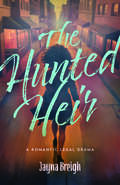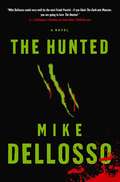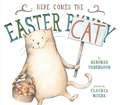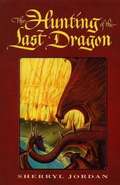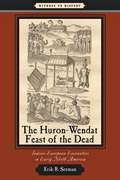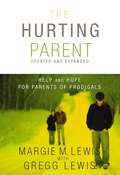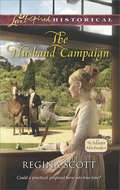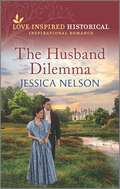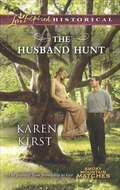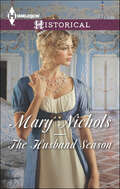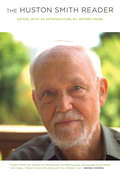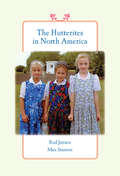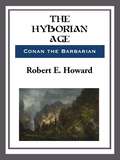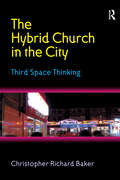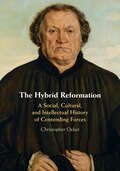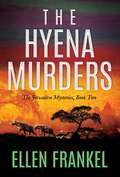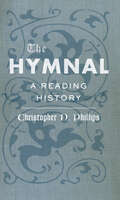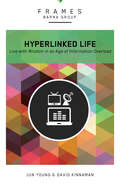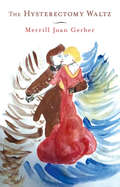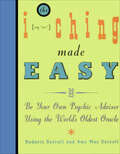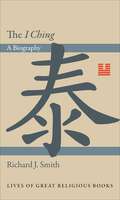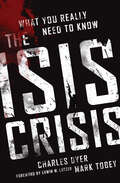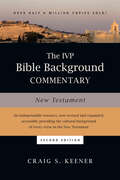- Table View
- List View
The Hunted Heir: A Romantic Legal Drama
by Jayna BreighAfter a tragic loss, private investigator Nona Taylor swore off romantic entanglements and distanced herself from the world. Once a year, on New Year's Eve, she attends church to beg God for forgiveness, haunted by the guilt of driving her twin sister to her death. Attorney DeMarcus Johnson is determined to climb the ladder to partnership by winning high-profile cases at his Los Angeles law firm, harnessing his ADHD hyperfocus to excel. He's everything Nona knows to steer clear of--an overconfident ex-jock willing to do anything for success. Their worlds collide when Nona's pastor receives a mysterious letter claiming he's the sole heir to a substantial estate. Desperate for answers, Nona infiltrates a lavish charity ball, only to be found out by a suspicious stranger--so she latches onto DeMarcus and concocts a fib about being his fiancée. Now bound by a false engagement, the pair reluctantly join forces to discover the truth about the inheritance. But when an unseen enemy strikes, they realize the stakes are higher than they thought. Can Nona and DeMarcus overcome their differences to keep the pastor safe, secure DeMarcus's partnership, and preserve a future for themselves?
The Hunted: A Novel
by Mike DellossoAfter learning of the disappearance of his nephew, Joe Saunders returns to his childhood home of Dark Hills. With rumors spreading of a rogue lion roaming the woods, he embarks on a mission to learn the truth. As he peels away the layers of Dark Hills, he discovers a secret that has been shrouded for three generations in a deadly code of silence. Will his young faith be strong enough to battle the demonic forces behind it?
The Hunters
by Clark HowardFour suburban males off on their annual hunting trip--an outing beginning with almost ritual sex in a country brothel, and moving ever deeper into a wilderness of primitive testing and the savage proving of manhood.
The Hunting of the Last Dragon
by Sherryl JordanHigh overhead, a dragon flies on coppery wings and rains down fire and destruction. It is the last of the great beasts, bent on wreaking havoc. Everywhere it flies, it chars the medieval English countryside, turning it and its people to gray ash with its fiery breath. Despairing and terrified, the people pray for a hero to save them. Jude is no hero. But when his family falls victim to the terrifying menace, he sets out to destroy the beast, even though he knows he has no hope of succeeding. Joined by a strange, beautiful young woman from a country far beyond the sea, Jude tells his tale of the hunting of the last dragon. Nothing like it has ever been told before.
The Huron Wendat Feast of the Dead: Indian European Encounters in Early North America (Witness to history)
by Erik R. SeemanErik R. Seeman analyzes these encounters, using the Feast of the Dead as a metaphor for broader Indian-European relations in North America. His compelling narrative gives undergraduate students of early America and the Atlantic World a revealing glimpse into this fascinating and surprising meeting of cultures.
The Hurting Parent: Help for Parents of Prodigal Sons and Daughters
by Gregg LewisChristian parents are not exempt from the struggle and heartbreak caused by rebellious children. This updated Ebook version of the classic resource The Hurting Parent by Margie Lewis, written with her son, bestselling author Gregg Lewis, for the first time offers the rest of the story that inspired the original edition of this book. The Hurting Parent takes a realistic approach to the problems young people face today—peer pressure, easy access to drugs and alcohol, and cultural influences that pull them from their family’s faith. The Lewises acknowledge there are no simple formulas or simple answers. But the biblical insight, emotional understanding, and practical encouragement they offer will be life changing. Written by a hurting parent for other hurting parents, this book, by ministering to hundreds of thousands of families over the past thirty years, has earned a prominent spot not only on the personal bookshelves of countless parents and their family and friends, but also on the professional shelves of pastors, youth ministers, and Christian counselors.
The Husband Campaign
by Regina ScottA Marriage of Necessity The moment John, Lord Hascot, encounters a young woman sheltering in his abandoned stable, his future is sealed. To prevent scandal-and protect Lady Amelia Jacoby from her parents' ire-he must propose. John's ability to trust vanished when his former love married his twin brother. Yet he offers Amelia everything she could want-except affection. Amelia sees John's true nature shine through when he cares for his horses. But the brooding aristocrat seems determined to keep her at arm's length. Little by little Amelia will turn Hollyoak Farm into a home, but can she turn a marriage of convenience into a joyful union? The Master Matchmakers: Wedding bells will ring when downstairs servants play Cupid for upstairs aristocracy
The Husband Dilemma
by Jessica NelsonShe must marry for duty…unless she finds her perfect match When Lady Ingrid Beauchamp&’s parents give her a list of potential husbands, her musical ambitions are plunged into jeopardy. Busy dreaming of studying piano at the Paris Conservatoire, she has no time for marriage. Desperate, Ingrid hires London detective Gideon West to find fault in each suitor. With orphaned children to care for, Gideon is grateful for the fee. But as each name is crossed off the list, could this charming detective be the one man Ingrid might fall for?
The Husband Hunt (Smoky Mountain Matches)
by Karen KirstWhen a Tennessee woman sets out to marry in under a month, her perfect match may be close to home in this charming historical romance.Sophie Tanner gave up hoping for Nathan O’Malley’s approval—and love—long ago. Getting married is the only way to protect her younger brother and keep her family’s Smoky Mountain farm. As much as she’d like Nathan to be the groom, he can’t seem to get past their friendship . . . or their differences. Since they were children, Nathan has known Sophie was too impulsive, too headstrong. She’s forever rushing into situations without thinking them through, like this scheme to snare a husband in under a month. Nathan always thought he’d fall in love with someone like himself—sensible, cautious, levelheaded. Sophie is his polar opposite. So why can’t he picture anyone else at his side?
The Husband Season
by Mary NicholsTo catch a husband! Miss Sophie Cavenhurst wants a husband with whom she can fall head over heels in love. But London is full of traps for an unwary country miss. And when this headstrong beauty is rescued by the maddeningly superior Viscount Kimberley, she is certain he's the last man she would ever consider! Adam has no intention of marrying again, least of all an outspoken girl who cares nothing for propriety! But this handsome widower soon realizes that a touch of impropriety may be just what he needs...
The Huston Smith Reader
by Huston SmithFor more than sixty years, Huston Smith has not only written and taught about the world's religions, he has lived them. This Reader presents a rich selection of Smith's writings, covering six decades of inquiry and exploration, and ranging from scholarship to memoir. Over his long academic career, Smith's tireless enthusiasm for religious ideas has offered readers both in and outside the academy a fresh understanding of what religion is and what makes it meaningful. The Huston Smith Reader offers a comprehensive guide to understanding religion and spirituality as well as a memorable record of Huston Smith's lifelong endeavor to enrich the inner lives of his fellow humans.
The Hutterites in North America (Young Center Books in Anabaptist and Pietist Studies)
by Rod Janzen Max StantonOne of the longest-lived communal societies in North America, the Hutterites have developed multifaceted communitarian perspectives on everything from conflict resolution and decision-making practices to standards of living and care for the elderly. This compellingly written book offers a glimpse into the complex and varied lives of the nearly 500 North American Hutterite communities.North American Hutterites today number around 50,000 and have common roots with and beliefs akin to the Amish and other Old Order Christians. This historical analysis and anthropological investigation draws on existing research, primary sources, and over 25 years of the authors' interaction with Hutterite communities to recount the group's physical and spiritual journey from its 16th-century founding in Eastern Europe and its near disappearance in Transylvania in the 1760s to its late 19th-century transplantation to North America and into the modern era. It explains how the Hutterites found creative ways to manage social and economic changes over more than five centuries while holding to the principles and cultural values embedded in their faith.Religious scholars, anthropologists, and historians of America and the Anabaptist faiths will find this objective-yet-appreciative account of the Hutterites' distinct North American culture to be a valuable and fascinating study both of the religion and of a viable alternative to modern-day capitalism.
The Hyborian Age
by Robert E. HowardThe Hyborian Age is an essay by Robert E. Howard pertaining to the Hyborian Age, the fictional setting of his stories about Conan the Cimmerian. It sets out in detail the major events of the prehistorical period, before and after the time of the Conan stories. In describing the cataclysmic end of the Thurian Age, the period described in his Kull stories, Howard linked both sequences of stories into one shared universe. This essay also sets out the racial and geographical heritage of the fictional peoples and countries of the Age.
The Hybrid Church in the City: Third Space Thinking
by Christopher Richard BakerThe era of post-colonialism and globalisation has brought new intensities of debate concerning the existence of diversity and plurality, and the need to work in partnerships to resolve major problems of injustice and marginalisation now facing local and global communities. The Church is struggling to connect with the significant economic, political and cultural changes impacting on all types of urban context but especially city centres, inner rings and outer estates and the new ex-urban communities being developed beyond the suburbs. This book argues that theology and the church need to engage more seriously with post-modern reality and thought if points of connection (both theologically and pastorally) are going to be created. The author proposes a sustained engagement with a key concept to emerge from post-modern experience - namely the concept of the Third Space. Drawing on case studies from Europe and the USA primarily, this book examines examples of Third Space methodologies to ask questions about hybrid identities and methods churches might adopt to effectively connect with post-modern cities and civil society. Particular areas of focus by the author include: the role and identity of church in post-modern urban space; the role of public theology in addressing key issues of marginalisation and urbanisation as they impact in the 21st century; the nature and role of local civil society as a local response to globalised patterns of urban, economic, social and cultural change.
The Hybrid Reformation: A Social, Cultural, and Intellectual History of Contending Forces
by Christopher OckerThree basic forces dominated sixteenth-century religious life. Two polarized groups, Protestant and Catholic reformers, were shaped by theological debates, over the nature of the church, salvation, prayer, and other issues. These debates articulated critical, group-defining oppositions. Bystanders to the Catholic-Protestant competition were a third force. Their reactions to reformers were violent, opportunistic, hesitant, ambiguous, or serendipitous, much the way social historians have described common people in the Reformation for the last fifty years. But in an ecology of three forces, hesitations and compromises were natural, not just among ordinary people, but also, if more subtly, among reformers and theologians. In this volume, Christopher Ocker offers a constructive and nuanced alternative to the received understanding of the Reformation. Combining the methods of intellectual, cultural, and social history, his book demonstrates how the Reformation became a hybrid movement produced by a binary of Catholic and Protestant self-definitions, by bystanders to religious debate, and by the hesitations and compromises made by all three groups during the religious controversy.
The Hyena Murders (The Jerusalem Mysteries #2)
by Ellen FrankelA murder plot seeded in the wild mountains of Ethiopia bears its poison fruit years later in modern Jerusalem as a serial killer targets a prominent Beta Israel family. Confronting racial politics, police corruption, and human trafficking, Israeli intelligence agent Maya Rimon tries to stop the killer before his double-edged blade finishes off the entire family.A refugee&’s discovery of a buried diary in a UN camp holds the key to solving a series of vicious murders in Jerusalem. Israeli intelligence agent Maya Rimon teams up with Ethiopian activist lawyer, Dani Solomon, to track down the serial killer, who has targeted the prominent Ethiopian Jewish family of Moshe Aklilu, a member of the Israeli Knesset. The murderer leaves cryptic clues on the victims&’ bodies: slash wounds made by a double-edged ceremonial knife, images of hyenas, and vengeful spirit animals associated with Jews back in Ethiopia. Because Aklilu is a member of the Knesset, Maya Rimon, an agent of the Service, Israel&’s elite Intelligence agency, takes on the case. So does her chief rival, Sarit Levine, Chief Inspector of the Jerusalem Police. Already biased against black Jews, Sarit suspects that the murder is a gang hit, payback for a failed drug deal. Maya suspects something far more sinister. Spiced with Ethiopian folklore and superstition, including Evil Eye curses, spirit possession, witch&’s brews and spells, The Hyena Murders explores the timely theme of racism: among the various tribes of Israeli Jews, among politicians and bureaucrats, and within Maya&’s own family. In the course of the novel, as she grows closer to Dani, these social tensions take on an increasingly personal meaning for Maya.
The Hymnal: A Reading History
by Christopher N. PhillipsUnderstanding the culture of living with hymnbooks offers new insight into the histories of poetry, literacy, and religious devotion.It stands barely three inches high, a small brick of a book. The pages are skewed a bit, and evidence of a small handprint remains on the worn, cheap leather covers that don’t quite close. The book bears the marks of considerable use. But why—and for whom—was it made? Christopher N. Phillips’s The Hymnal is the first study to reconstruct the practices of reading and using hymnals, which were virtually everywhere in the eighteenth and nineteenth centuries. Isaac Watts invented a small, words-only hymnal at the dawn of the eighteenth century. For the next two hundred years, such hymnals were their owners’ constant companions at home, school, church, and in between. They were children's first books, slaves’ treasured heirlooms, and sources of devotional reading for much of the English-speaking world. Hymnals helped many people learn to memorize poetry and to read; they provided space to record family memories, pass notes in church, and carry everything from railroad tickets to holy cards to business letters. In communities as diverse as African Methodists, Reform Jews, Presbyterians, Methodists, Roman Catholics, and Unitarians, hymnals were integral to religious and literate life. An extended historical treatment of the hymn as a read text and media form, rather than a source used solely for singing, this book traces the lives people lived with hymnals, from obscure schoolchildren to Emily Dickinson. Readers will discover a wealth of connections between reading, education, poetry, and religion in Phillips’s lively accounts of hymnals and their readers.
The Hyperlinked Life: Live with Wisdom in an Age of Information Overload
by David Kinnaman Barna Group Jun YoungIt’s an age of accelerated information and information overload. The rate and way in which we receive information has changed dramatically: from newspapers and radio and a few nightly news programs to constant news online. We have made our lives available to the world in “tweetable” moments. As much as we try to stop consuming the vast amounts of info coming at us, we wrestle against a paranoia of ‘missing out’ on important information or being out of the loop on something. How can we rest from information, take a Sabbath for our technology or information use? How does this help us to become the right kind of factivist? The onus is more and more on us to find "the truth" and to be aware of our own biases in what we share and don't. Join Jun Young, an award-winning entrepreneur and communications strategist, and David Kinnaman, the President of Barna Group, in this Barna Frame as they wrestle through what our responsibility looks like in how we read and disseminate information.
The Hysterectomy Waltz
by Merrill Joan Gerber"It's truly powerful, and acrid, and barbed, and filled with wonderful, and unexpected, turns of phrase and above all it's shocking in its directness and understated anger and sadness and fear... it's an amazing piece of writing."-Cynthia OzickImagine being told before the age of forty that because you have an ovarian cyst, the surgeon wants to take out the "whole kit and caboodle." Imagine being told that "because you already have your children, "who needs all that?" Why not "keep the playground but get rid of the plumbing?" Imagine watching a film strip at the hospital which assures you that though you will no longer have your female organs, you will still have romance in your life and will be "able to waltz the night away with your husband."The Hysterectomy Waltz is a sharp and cynical, funny and tragic comedy, a story of marriage and motherhood under the threat of the knife, a tale of friendship and betrayal.
The I Ching Made Easy: Be Your Own Psychic Advisor Using the World's Oldest Oracle
by Roderic Sorrell Amy M. SorrellWith fifteen cents and five minutes, you too can use and understand the I ChingWith six coins (one dime and five pennies) and this easy-to-use guide, tapping into the synchronicity of the universe is simpler and more rewarding than ever.
The I Ching: A Biography (Lives of Great Religious Books #9)
by Richard J. SmithHow the I Ching became one of the most widely read and influential books in the worldThe I Ching originated in China as a divination manual more than three thousand years ago. In 136 BCE the emperor declared it a Confucian classic, and in the centuries that followed, this work had a profound influence on the philosophy, religion, art, literature, politics, science, technology, and medicine of various cultures throughout East Asia. Jesuit missionaries brought knowledge of the I Ching to Europe in the seventeenth century, and the American counterculture embraced it in the 1960s. Here Richard Smith tells the extraordinary story of how this cryptic and once obscure book became one of the most widely read and extensively analyzed texts in all of world literature.In this concise history, Smith traces the evolution of the I Ching in China and throughout the world, explaining its complex structure, its manifold uses in different cultures, and its enduring appeal. He shows how the indigenous beliefs and customs of Japan, Korea, Vietnam, and Tibet "domesticated" the text, and he reflects on whether this Chinese classic can be compared to religious books such as the Bible or the Qur'an. Smith also looks at how the I Ching came to be published in dozens of languages, providing insight and inspiration to millions worldwide—including ardent admirers in the West such as Leibniz, Carl Jung, Philip K. Dick, Allen Ginsberg, Hermann Hesse, Bob Dylan, Jorge Luis Borges, and I. M. Pei. Smith offers an unparalleled biography of the most revered book in China's entire cultural tradition, and he shows us how this enigmatic ancient classic has become a truly global phenomenon.
The ISIS Crisis: What You Really Need to Know
by Mark Tobey Charles H. DyerWith ISIS on the rise, what do we need to know?ISIS—a name that inspires fear, a group that is gaining momentum. Horrors unheard of are plaguing the Middle East, and ISIS may be responsible for the worst among them. And yet there is so much we don&’t know about ISIS:Where did ISIS come from?How is ISIS distinguished from other terrorist groups?Could ISIS play a role in the end times?What does ISIS mean for Israel?What impact could these events have on the United States?How should believers respond?In The ISIS Crisis, authors Charles Dyer and Mark Tobey answer these questions and more. Drawing from history, current events, and biblical prophecy, they guide readers through the matrix of conflicts in the Middle East. Then they explore the role of ISIS in all of these matters. Finally, they encourage Christians to look to Jesus, the Prince of Peace.
The ISIS Crisis: What You Really Need to Know
by Mark Tobey Charles H. DyerWith ISIS on the rise, what do we need to know?ISIS—a name that inspires fear, a group that is gaining momentum. Horrors unheard of are plaguing the Middle East, and ISIS may be responsible for the worst among them. And yet there is so much we don&’t know about ISIS:Where did ISIS come from?How is ISIS distinguished from other terrorist groups?Could ISIS play a role in the end times?What does ISIS mean for Israel?What impact could these events have on the United States?How should believers respond?In The ISIS Crisis, authors Charles Dyer and Mark Tobey answer these questions and more. Drawing from history, current events, and biblical prophecy, they guide readers through the matrix of conflicts in the Middle East. Then they explore the role of ISIS in all of these matters. Finally, they encourage Christians to look to Jesus, the Prince of Peace.
The IVP Bible Background Commentary: New Testament (Ivp Bible Background Commentary Set Ser.)
by Craig S. KeenerChristianity Today'sPreaching's
